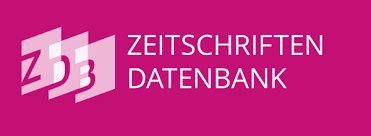Behavioral economics as a basis for promoting recreation and tourism activities
DOI:
https://doi.org/10.47557/XMSH2668Keywords:
touristic and recreational activities, local development, behavioral economie, nudges, bias, wellbeingAbstract
The possibilities of using behavioral economics as theoretical support for the design of public policies are explored, aimed at the furtherance and promotion of recreational and tourist activities in the town of San Nicolás Tetelco, Tláhuac, for which purpose a Randomized Controlled Trial was performed. Concepts such as loss aversion, perspective and results bias, nudge, signals and expectations, were used to design the experiment and analyze its results. A probabilistic questionnaire was applied to find out the motivations of the inhabitants, with that base two tourist routes were designed in the area (control and study), in which 20 and 22 people respectively participated. The findings of the study confirm: 1) the importance of the detailed design of interventions in human groups, as a mean to bring the results closer to their purposes and 2) that satisfaction levels improve when their expectations are close to the experience results, thereby reducing the hindsight bias.
Downloads
References
Alcaldía de Tláhuac. (2020). Turismo local. https://bit.ly/2TZSkUA
Campos, R. M. (2017). Economía y psicología. Apuntes sobre economía conductual para entender problemas económicos actuales. El Colegio de México.
Cati, M. (2020). Behavioral tourism economics. SSRN. https://dx.doi.org/10.2139/ssrn.3685059
Consejo Nacional de Evaluación de la Política de Desarrollo Social (Coneval). (2020). Índice de rezago social 2020. https://bit.ly/3CjV8go
Duflo, E. y Banerjee, A. (2011). Poor economics. A radical rethinking of the way to fight global poverty. Public Affairs.
Gursoy D., Hoc Nang Fong, L. y Sigala, M. (2020). Experimental research in tourism. Asia Pacific Journal of Tourism Research, 25, 707-709. https://doi.org/10.1080/10941665.2020.1775277
Haynes, L., Service, O., Goldacre, B. y Torgerson, D. (2012). Test, learn, adapt: developing public policy with randomised controlled trials. The Behavioural Insights Team. https://bit.ly/3fwZtTQ
Instituto Nacional de Estadística y Geografía (INEGI). (2010). Censo de población y vivienda 2010. Mapa. https://bit.ly/3ip6vMh
Instituto Nacional de Estadística y Geografía (INEGI). (2020). DENUE Directorio estadístico nacional de unidades económicas. https://bit.ly/37mXOeY
Jefatura de la Unidad Departamental (JUD) de Fomento a la Actividad Turística. (2018). Programa 2018. Alcaldía de Tláhuac.
Kahneman, D. y Tversky, A. (1979). Teoría prospectiva: un análisis de la decisión bajo riesgo. Econometrica, 47(2), 263-292. https://doi.org/10.2307/1914185
Kahneman, D. (2013). Pensar rápido, pensar despacio. Penguin Random House y Grupo Editorial España.
Marín, L. (2020). Identidad y paisaje en el pueblo de San Nicolás Tetelco, Tláhuac y Milpa Alta, CDMX [investigación de licenciatura, Universidad Autónoma Metropolitana]. Repositorio institucional. https://bit.ly/3jquppN
Mendoza, A. (2019). Uso de la economía del comportamiento en la elaboración de políticas y programas para el fomento e impulso de actividades turísticas y recreativas. Estudio de caso San Nicolás Tetelco, Alcaldía Tláhuac de la Ciudad de México [tesis de maestría, Instituto Politécnico Nacional]. Repositorio Dspace. https://tesis.ipn.mx/handle/123456789/27807
Mosalev, A. I. (2020). Influence in the behavioral economy of the tourist industry. Advances in Economics, Business and Management Research, 128, 726-732. https://doi.org/10.2991/aebmr.k.200312.103
Norton, M., Mochon, D. y Ariely, D. (2011). The "IKEA effect": when labor leads to love. Revista de Psicología del Consumidor, 22(3), 453–460. https://doi.org/10.1016/j.jcps.2011.08.002
Ogaki, M. y Tanaka, S. (2017). Behavioral economics toward a new economics by integration with traditional economics. Springer Nature. https://bit.ly/3AdJAd4
Pfarr, N. (2016). Aplicando la economía del comportamiento al diseño. En E. Díaz y C. del Valle (Eds.), Guía de economía del comportamiento Vol. 1: políticas públicas (pp. 17-40). Instituto Mexicano de Economía del Comportamiento. https://bit.ly/2Vy1jNe
Richburg-Hayes, A. F., Anzelone, C., Dechausay, N., Datta, S., Fiorillo, A., Potok, L., Darling, M. y Balz, J. (2014). Behavioral economics and social policy: designing innovative solutions for programs supported by the administration for children and families. OPRE Report No. 2014-16a. Department of Health and Human Services. https://bit.ly/3jnejgN
Secretaría de Turismo (Sectur). (2013). Agendas de competitividad de los destinos turísticos de México. Ciudad de México (ACTCM 2013). https://bit.ly/3inHZLz
Simon, H. (1982). El comportamiento administrativo. Estudio de los procesos decisorios en la organización administrativa. Aguilar Argentina S.A. Ediciones.
Thaler, R. (2015). The making of behavioral economics misbehaving. W. W. Norton & Company, Inc.
Thaler, R. y Sunstein, C. (2008). Nudge. Improving decisions about health, wealth and happiness. Penguin Books.
Wallingre, N. (2014). Turismo, territorio y municipio. FACES, Revista de la Facultad de Ciencias Económicas y Sociales, 42-43, 143-164. https://bit.ly/2VuraWm
Wallstam, M., Ioannides, D. y Pettersson, R. (2020). Evaluating the social impacts of events: in search of unified indicators for effective policymaking. Journal of Policy Research in Tourism, Leisure and Events, 12(2), 122-141. https://doi.org/10.1080/19407963.2018.1515214
Published
How to Cite
Issue
Section
License
Copyright (c) 2023 Anaid Mendoza Sánchez, Rocío Huerta Cuervo

This work is licensed under a Creative Commons Attribution-NonCommercial-NoDerivatives 4.0 International License.
All contents of Dimensiones Turísticas are published under the Attribution/Attribution - non-commercial - sharealike 4.0 International license, and can be used free of charge for non-commercial purposes, giving credit to the authors and the Dimensiones Turísticas journal. Articles before January-December 2023 were published under Attribution/Attribution - Non-Commercial - NoDerivatives 4.0 International License.











